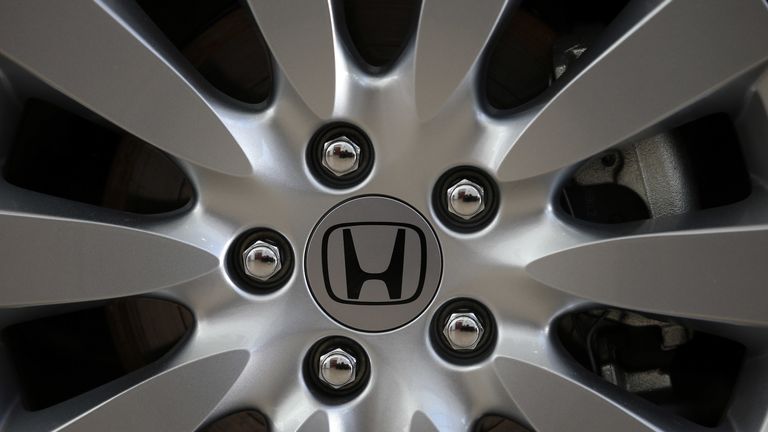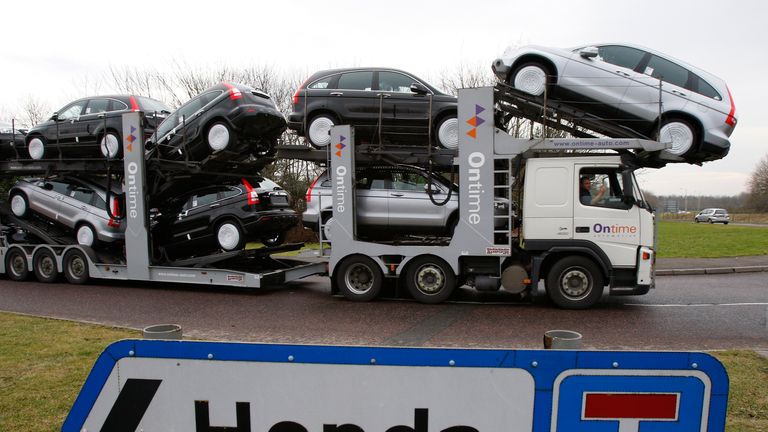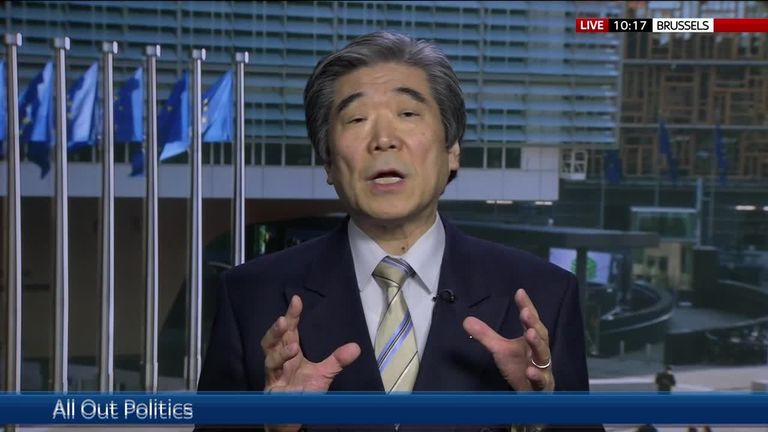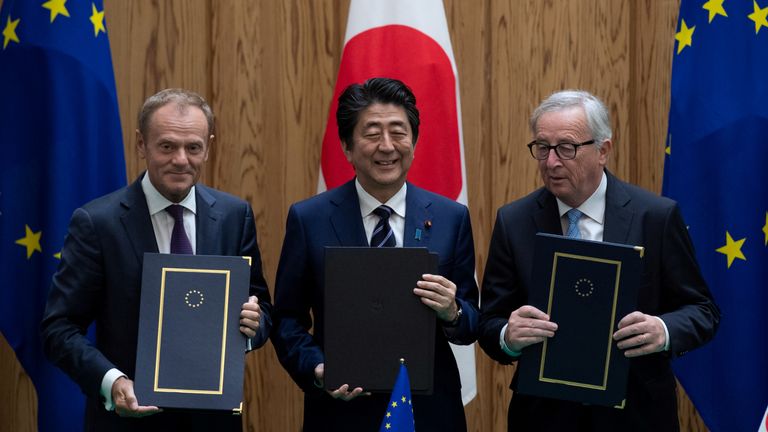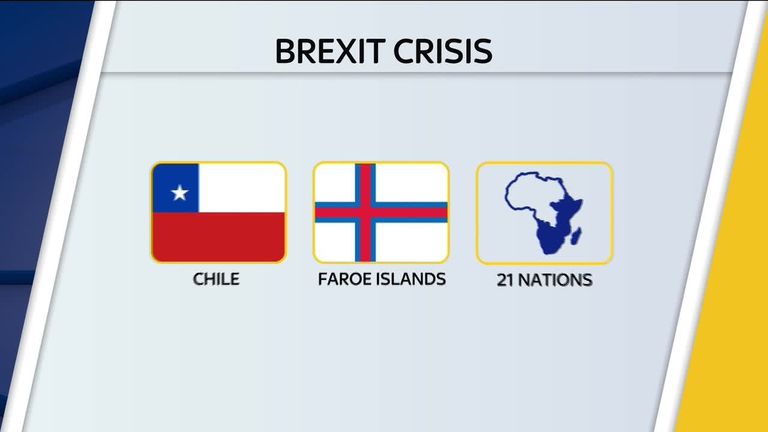Japan/EU trade deal likely the biggest factor in Honda move from Swindon
Sky's economics editor says Brexit consequences, rather than Brexit itself, have driven Honda's looming exit from Swindon.
Tuesday 19 February 2019 10:57, UK
It is tempting, when one reads stories such as the one broken by my colleague Mark Kleinman about Honda shutting down its Swindon factory, to leap to conclusions.
Within minutes of the story going live, commentators on Twitter were saying this was yet another consequence of Brexit.
But while Brexit is hardly helping (we'll get to that in a second) it is worth in this case being a little cautious about putting it all down to Britain's decision to leave the European Union.
Let's also bear in mind a few other important factors.
The first is that Brexit is hardly the only thing happening in the motor industry at present. Indeed, if anything it's a good few places down the list of major issues and concerns facing multinational motor companies.
There are the problems faced across the industry with diesel engines.
There's the shift to electric powertrains.
There's the threat of a global trade war as Donald Trump considers imposing tariffs on car imports.
If you are a strategist deciding where to build your plant or make your next car model there are, in short, many crucial factors to bear in mind. And if you're a Japanese car maker with a factory in the UK there are a few other things to bear in mind too.
The first of them is that only a few months ago Japan and the EU signed their free trade deal, meaning tariffs on car exports from Japan are now being eliminated, alongside a host of other trade barriers.
Suddenly, the economic barriers that might once have persuaded you to locate your plant in the UK have evaporated.
Then there's Brexit. And there's no doubt that for car companies the threat of a no-deal Brexit is of deep concern.
Most of these companies have long supply chains that traverse borders throughout Europe and beyond. They are just-in-time operations, so a delay of even a few minutes can mean the difference between a profitable day of production and a loss. Any decision to throw sand into the wheels of free trade (and the EU is the world's biggest free trade area) is not encouraging.
In the case of Honda, the likelihood is that, of all these factors, the new Japan-EU trade deal was the most decisive.
The company can now enjoy near frictionless trade with one of its biggest markets, without having to locate there. It makes more business sense to consolidate its production back into Japan.
Brexit is unlikely to have helped at the margin: no manager wants unnecessary risk, and Brexit poses all sorts of risks about access to international markets. So perhaps it contributed a bit, but was it the decisive tipping point? Unlikely.
However, the episode raises a deeper issue. It underlines just how important the big trade deals are, such as the one signed by the UK and Japan.
Note that when the UK leaves the EU it will be able to sign its own deals. On the one hand that is cited by many Brexiteers as being one of the key advantages to leaving the EU. On the other hand most of the evidence suggests that when it comes to trade deals, size matters.
The UK may punch above its weight when it comes to military and diplomatic matters, but this is largely because it retains a permanent seat at the UN Security Council and the IMF executive board.
There is no analogous advantage the UK can rely on when it comes to trade negotiations. So attempting to forge a trade relationship that will be advantageous to Britain will be fiendishly difficult.
Indeed, the UK is beginning to learn this already. There have been reports that the UK's attempts to replicate that EU-Japan trade deal once the UK leaves are foundering, and that Japan is determined to seek more advantageous terms with Britain.
The world of trade and economic diplomacy is a brutal one, as Britain is about to discover. And the consequence of those trade deals is long-lived and enormous, as we have seen with Honda's decision today.

